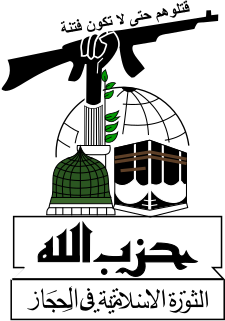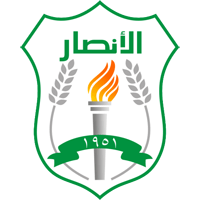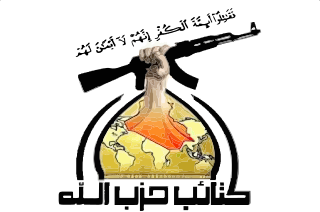Related Research Articles

Hezbollah is a Lebanese Shia Islamist political party and militant group, led by its Secretary-General Hassan Nasrallah since 1992. Hezbollah's paramilitary wing is the Jihad Council, and its political wing is the Loyalty to the Resistance Bloc party in the Lebanese Parliament.

Hassan Nasrallah (Arabic: حسن نصر الله [ħasan nasˤrɑɫɫɑh]; born 31 August 1960) is a Lebanese cleric and political leader who serves as the 3rd secretary-general of Hezbollah since his predecessor, Abbas al-Musawi, was assassinated by the Israel Defense Forces in February 1992.
Al-Manar is a Lebanese satellite television station owned and operated by the political party Hezbollah, broadcasting from Beirut, Lebanon. The channel was launched on 4 June 1991 and it is a member of the Arab States Broadcasting Union.

The Amal Movement is a Lebanese political party and former militia affiliated with the Shia sect. Founded by Musa al-Sadr in 1974, the party has been led by Nabih Berri since 1980.

Abbas al-Moussawi was an influential Lebanese Shia cleric, co-founder and Secretary General of Hezbollah. He was killed by the Israel Defense Forces in 1992.

Hezbollah Al-Hejaz, or Hizbollah in the Hijaz, was a militant Shia organization operating in Saudi Arabia. It was founded in May 1987 in Saudi Arabia's Eastern Province. It is pro-Khomeini as opposed to the pro-Shirazi Organization for the Islamic Revolution in the Arabian Peninsula. In the years 1987-89 the party launched attacks against official Saudi targets inside and outside Saudi Arabia. After being implicated in the Khobar Towers Bombing in 1996, the party was outlawed in Saudi Arabia. Most of its members were arrested and the party practically ceased to exist. In 2014 it was designated a terrorist organization by the kingdom's government.

Al Ansar Football Club is a football club based in Tariq El Jdideh, a district in Beirut, Lebanon, that competes in the Lebanese Premier League. Formed in 1951, the club did not win its first Lebanese Premier League until 1988. They went on to set a world record by winning the league 11 seasons in a row.
Hezbollah Bayt al-Mal, AKA Hezbollah Bayt al-Mal Lil Muslimeen, is a Hezbollah-controlled organization that performs financial services for the organization. In Arabic, the term is used as "House of Money."
Yousser Company for Finance and Investment is a bank that was part of the first Canadian lawsuit against a bank over terrorist funding.
Hezbollah has a Foreign Relations Unit and maintains relations with a number of foreign countries and entities. These are particularly Shia states, but also Sunni groups like those affiliated with the Palestinian cause; and the group is also suggested to have operations outside the Middle East in places such as Latin America and North Korea.

Subhi al-Tufayli was the first Secretary-General or leader of Hezbollah for a year. Al-Tufayli is a Shia Islamist, but is a very vocal critic of Iran and the current Hezbollah leadership. He has been an active member of the Lebanese movement Amal Movement, and maintains his support of the organization.
Since the Iranian Revolution in 1979, the government of Iran has been accused by several countries of training, financing, and providing weapons and safe havens for non-state militant actors, such as Hezbollah in Lebanon, Hamas in Gaza, and other Palestinian groups. These groups are designated terrorist groups by a number of countries and international bodies; however, Iran considers such groups to be "national liberation movements" with a right to self-defense in the face of Israeli military occupation.

The 2008 Lebanon conflict was a brief intrastate military conflict in May 2008 in Lebanon between opposition militias and pro-government Sunnis, after the 18-month-long political crisis spiraled out of control, when the government's decision to dismantle Hezbollah's telecommunication system, which led to Hezbollah seizing control of west Beirut, and ended with the adoption of the Doha Accord in 2008.

Kata'ib Hezbollah —or the Hezbollah Brigades—is a radical Iraqi Shiite paramilitary group which is part of the Popular Mobilization Forces backed by Iran. During the Iraq War (2003–11), the group fought against Coalition forces. It has been active in the War in Iraq (2013–2017) and the Syrian civil war (2011–present). The group was commanded by Abu Mahdi al-Muhandis until he was killed by a US airstrike in Baghdad on 3 January 2020. Thereafter, he was replaced by Abdul Aziz al-Muhammadawi, as the new leader of the Popular Mobilization Forces (PMF).

Ali Al Shami is a Shia Lebanese academic and a member of the Amal movement. He was Lebanon's minister of foreign affairs and emigrants from 2009 to 2011.

Hashim Safi Al Din is a Lebanese Shia cleric, senior Hezbollah official and a maternal cousin of the secretary general of Hezbollah, Hassan Nasrallah. He is the head of Hezbollah's Executive Council and a Specially Designated Global Terrorist, and generally considered the "number two" in Hezbollah.

Taha Subhi Falaha, known as Abu Muhammad al-Adnani al-Shami, was the official spokesperson and a senior leader of the Islamic State of Iraq and the Levant, also called the Islamic State or ISIS, and also known by its Arabic acronym Daesh. He was described as the chief of its external operations. He was the second most senior leader of the Islamic State after its leader Abu Bakr al-Baghdadi. Media reports in August 2016 suggested he was in charge of a special unit, known as the Emni, that was established by ISIL in 2014 with the double objective of internal policing and executing operations outside the ISIL territory.
The January 2015 Mazraat Amal incident was an airstrike against a two-car convoy that killed six Hezbollah fighters, including two prominent members, and a general of the Iranian Revolutionary Guards (IRGC), Mohammad Ali Allahdadi, at al-Amal Farms in the Quneitra District of Syria, in the Eastern Golan Heights, on 18 January 2015, during the Syrian Civil War. The attack was largely attributed to Israel, which did not officially confirm that it carried it out, as usual. Hezbollah and IRGC held Israel responsible and threatened to retaliate. On 19 January 2015, Al-Nusra Front member Abu Azzam al-Idlibi claimed that Jihad Mughniyeh and the other Hezbollah fighters were killed in an Al-Nusra Front ambush at Jaroud in the Qalamoun Mountains in the Al-Qutayfah District northeast of Damascus, claiming that it "will be the end of the Persian project, God willing."

Hezbollah involvement in the Syrian Civil War has been substantial since the beginning of armed insurgency phase of the Syrian Civil War in 2011, and evolved into active support for Ba'athist government forces and troop deployment from 2012 onwards. By 2014, Hezbollah was deployed across Syria. Hezbollah deployed several thousand fighters in Syria and has lost up to 1,700 fighters in combat. Hezbollah has also been very active in preventing Syrian rebel penetration into Lebanon, being one of the most active forces in the Syrian Civil War spillover in Lebanon.

The Rewards for Justice Terror List is established by the Rewards for Justice Program, managed by the United States Department of State, to identify cash rewards for information leading to arrest or elimination of the top terrorist enemies of the United States.
References
- ↑ Branded terrorist, microcredit czar keeps lending Post-Gazette, December 28, 2006